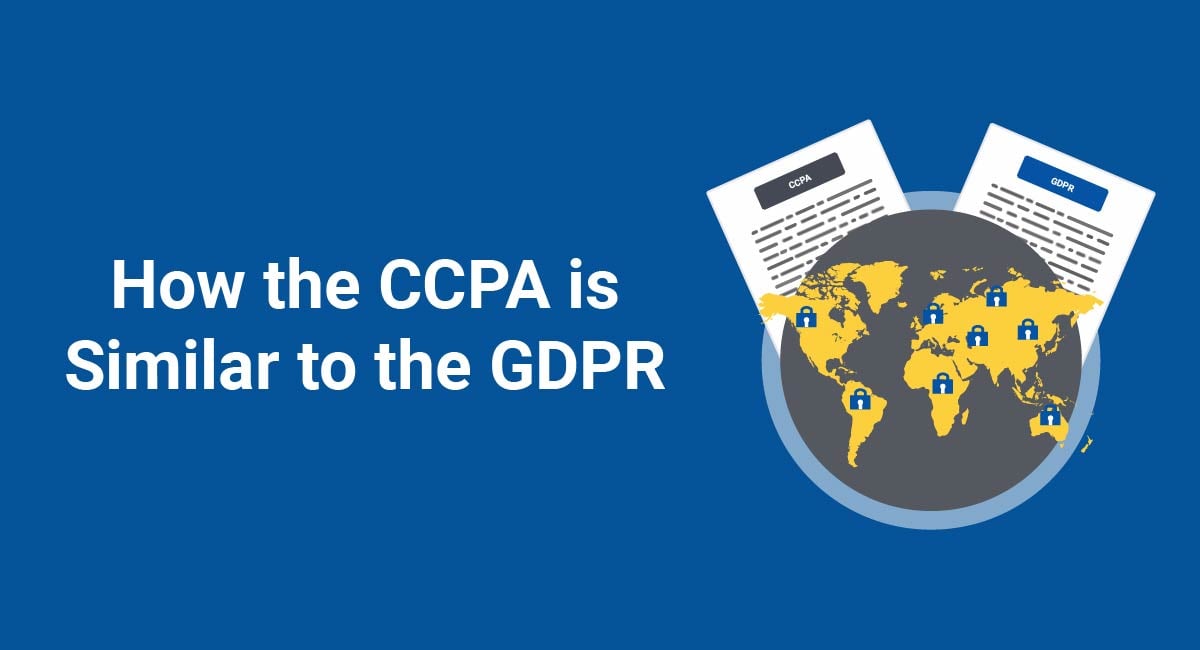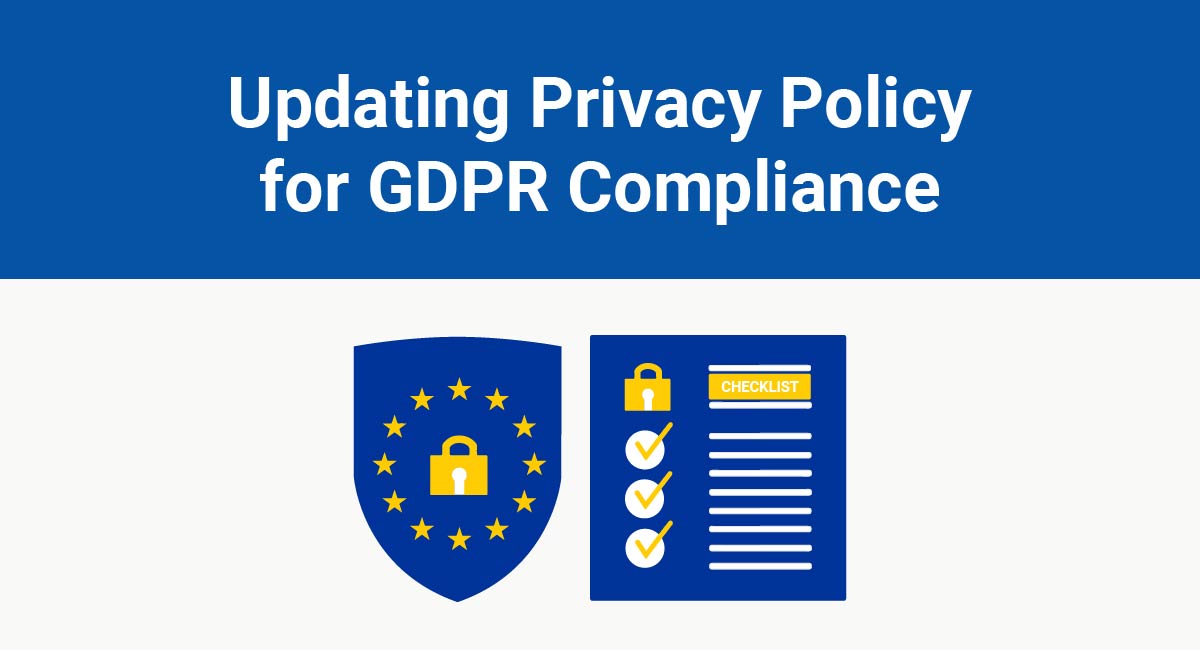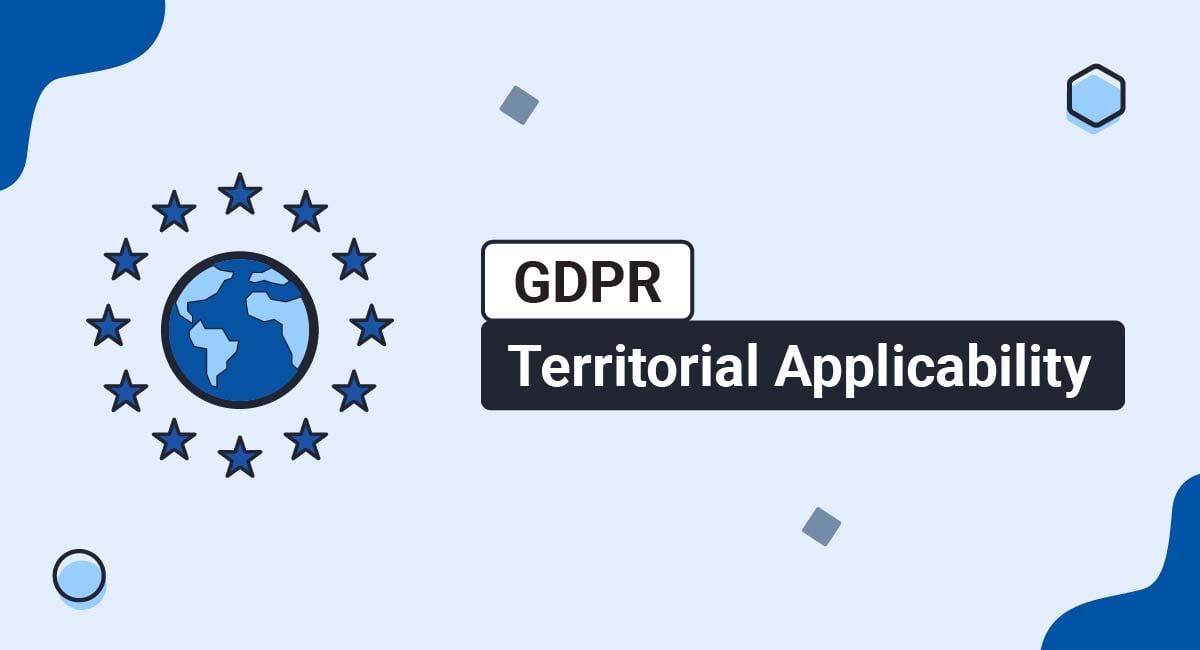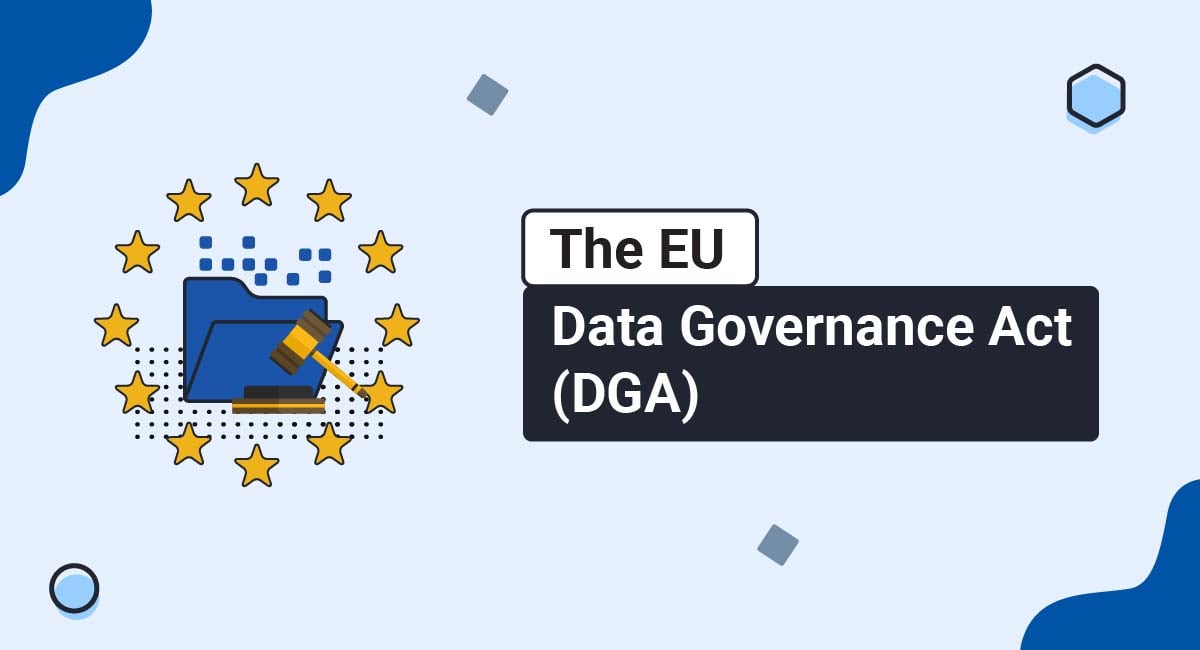The California Consumer Privacy Act (CCPA), which passed in June 2018 and came into force in January 2020, took some inspiration from the EU's General Data Protection Regulation (GDPR). It was then later amended and expanded via the CPRA to be even more like the GDPR.
In many ways, the laws are very different. But at their core, both laws share the goal of bringing individuals more control over their personal information. If the hope is to bring data protection standards in the United States a little closer to the European level, then the CCPA (CPRA) looks set to achieve this.
Let's take a detailed look at some of the similarities between the two laws.
Our Privacy Policy Generator makes it easy to create a Privacy Policy for your business. Just follow these steps:
-
At Step 1, select the Website option or App option or both.

-
Answer some questions about your website or app.

-
Answer some questions about your business.

-
Enter the email address where you'd like the Privacy Policy delivered and click "Generate."

You'll be able to instantly access and download your new Privacy Policy.
- 1. Definitions
- 1.1. Personal Information/Personal Data
- 1.2. Processing
- 1.3. Data Controller/Business
- 1.4. Data Processor/Service Provider
- 2. Where and How the Laws Apply
- 2.1. Territorial Scope
- 2.2. Material Scope and Objectives
- 3. Privacy Policy Requirements
- 3.1. GDPR Privacy Policy
- 3.2. CCPA (CPRA) Privacy Policy
- 4. Rights Over Personal Information
- 4.1. Right of Access
- 4.2. Right of Data Portability
- 4.3. Right to Erasure/Right to Deletion
- 4.4. Right to Object/Right to Opt Out
- 5. Enforcement
- 6. Summary of Similarities Between the CCPA (CPRA) and the GDPR
Definitions

Sometimes the GDPR and the CCPA (CPRA) use different language to describe the same things. The terminology is less important than the actual concepts that the laws define.
Personal Information/Personal Data
What the CCPA (CPRA) calls "personal information," the GDPR refers to as "personal data."
Both laws are basically referring to the same thing here - information that can be used to identify a person. Beyond the obvious things like a person's name, email address or ID number, this also includes things such as an IP address or cookies data.
What unites the laws here is that they are both trying to take a very broad approach. If anything, the CCPA (CPRA) is actually broader than the GDPR in this (and only this) area. But one very important phrase is common to both: personal information (or data) is something that can be used, "directly or indirectly" to identify a person.
The word "indirectly" has allowed courts in the EU to decide that many things constitute personal data. It's clear that policy-makers are hoping to allow California courts a similarly wide discretion with the CCPA (CPRA).
Processing
Both laws use the term "processing" to describe exactly the same thing.
In Article 4 of the GDPR, "processing" is defined as "any operation or set of operations which is performed on personal data or on sets of personal data, whether or not by automated means."
The CCPA (CPRA) lifts this phrase almost word-for-word from the GDPR. The drafters of the CCPA (CPRA) haven't even changed the term "personal data" to "personal information."
It's clear that the CCPA (CPRA) is trying to cover the exact same activities as the GDPR - that is, it is trying to regulate any activity that can be performed on personal information, including collection, storage, sending, etc.
Data Controller/Business
The GDPR is aimed in part at "data controllers." A data controller "alone, or jointly with others, determines the purposes and means of the processing of personal data."
The CCPA (CPRA) is aimed squarely at "businesses." "Business" in the CCPA (CPRA) means a very specific type of business, with very specific characteristics. Some of these characteristics have to do with total annual revenue and/or core activities.
Importantly, one of these characteristics is - you guessed it - that it "alone, or jointly with others, determines the purposes and means of the processing of consumers' personal information."
The significance here is that both laws are trying to regulate the activities of the sorts of companies that decide how and why people's personal information should be processed. This element of control is what unites the definitions.
Data Processor/Service Provider
Where the GDPR says "data processor," the CCPA (CPRA) refers to a "service provider."
A "data processor" in the GDPR is a person or organization that "processes information on behalf of the [data] controller."
A "service provider" in the CCPA (CPRA) is a "legal entity that [...] that processes information on behalf of a business [...]"
The two terms refer to companies that are carrying out the same sorts of tasks.
Where and How the Laws Apply

The GDPR has led businesses all around the world to examine and publicize their privacy practices. The CCPA (CPRA) looks set to do the same.
Territorial Scope
The GDPR doesn't shy away from claiming a very broad jurisdiction. Article 3 states that the Regulation applies to anyone that either offers goods or services, or monitors people's behavior in the EU - whether based in the EU or not.
The CCPA (CPRA) says the same thing, but less explicitly. It defines a "business" as a legal entity that, along with other characteristics, "does business in the State of California." The Act doesn't refer only to businesses are established in California, or whose headquarters or in California - it applies to anyone who does business in California.
Complications may arise when trying to enforce these laws against foreign businesses. But the importance of operating unimpeded in these two crucially important markets should provide enough motivation for businesses to comply with the laws.
Material Scope and Objectives
Another area of similarity is in what the laws apply to. As we've seen, both apply to the processing of personal information, primarily by the people who make decisions about how and why such information is processed.
Both the CCPA (CPRA) and the GDPR are explicit in their aim to protect the privacy of the residents of their respective jurisdictions. Both laws do this partly by requiring businesses to be transparent in how they process personal information, and partly by granting individuals new rights over their personal information.
We'll look at some of these rights in more detail below.
Privacy Policy Requirements

Both the GDPR and CCPA (CPRA) have extensive requirements around transparency. While, as is the case in most areas, the GDPR's requirements are more stringent, businesses will still have to do a lot of work to comply with the CCPA (CPRA).
GDPR Privacy Policy
The GDPR requires that data controllers reveal almost everything about their data processing activities in their Privacy Policy (sometimes called a "Privacy Notice" or "Privacy Statement"). A number of these items are similar to what is required by the CCPA (CPRA), including:
- The categories of personal information that are processed (e.g. name, email address, cookie data, etc.),
- The purposes of the processing (e.g. to make contact regarding an order, display targeted ads, etc.),
- The categories of third parties with whom the information might be shared (e.g. marketing companies, mailing companies, etc.),
- The rights that individuals have to control their personal information (e.g. the right of access, the right to object, etc.), and how they can access these rights, and
- The sources from which the personal information has been collected (if applicable)
CCPA (CPRA) Privacy Policy
The CCPA (CPRA) builds on the requirement of its predecessor legislation, the California Online Privacy Protection Act (CalOPPA), that businesses publish a Privacy Policy. That Privacy Policy now has to be amended to include some very specific, up-to-date information.
The CCPA/CPRA's requirements are mostly derivative of the GDPR's. For example, a business is required to disclose:
- The categories of personal information it is collecting,
- The purposes for which the business is collecting this information, or for which it might sell or share the information for commercial purposes (if applicable),
- The rights that consumers have to control their personal information (e.g. the right of access, the right to opt out, etc.), and how they can access these rights,
- The categories of recipients with whom personal information might be sold or shared for commercial purposes, and
- The sources from which the personal information has been collected (if applicable)
Beyond this, the transparency requirements actually look a little different. It's not that the CCPA (CPRA) requires businesses to reveal more than the GDPR does - it's just more specific with regard to the selling of personal information.
Rights Over Personal Information

The rights and controls that the CCPA (CPRA) grants California residents over their personal information is probably its headline provision. It's also one of the areas most obviously inspired by the GDPR.
In reality, the GDPR's data rights are a lot meatier than the somewhat watered-down rights offered under the CCPA (CPRA). Still, there are some significant similarities between the rights provided under both laws.
Right of Access
In Article 15, the GDPR gives individuals the right to request access to any of their personal information that a data controller is processing. If exercised, and subject to certain exceptions, the data controller must provide the individual with a copy of their personal information, for free, within a specified time period.
The CCPA (CPRA) contains a very similar provision - California residents should be able to request a copy of their personal information from a business and have it provided, for free, within a specified period. The right of access under the CCPA (CPRA) is narrower in scope, but the principle is the same.
Right of Data Portability
In Article 20, the GDPR allows individuals to request a copy of their personal information in a "commonly used and machine-readable format" so that they can transmit this data to another organization "without hindrance."
Whilst, again, it is somewhat narrower in scope, the CCPA (CPRA) also provides Californians with this right as part of the "right of access" (above). When a consumer requests a copy of their information:
"the information shall be in a portable and, to the extent technically feasible, in a readily useable format that allows the consumer to transmit this information to another entity without hindrance."
Right to Erasure/Right to Deletion
The GDPR's right to erasure, found in Article 17, is sometimes known as the "right to be forgotten." It's one of the better-known provisions of EU law, and it came out of a case called Google Spain v AEPD and Mario Costeja Gonzalez.
Following this case, Google has been required to consider requests from individuals that it removes references to them in its search results. It's why you might sometimes notice the following disclaimer at the bottom of a page of search results:
![]()
This is a very powerful right under the GDPR, but there are many exceptions and a data controller will not always have to comply.
The CCPA (CPRA) also grants individuals this right:
"A consumer shall have the right to request that a business delete any personal information about the consumer which the business has collected from the consumer."
Again, there are many exceptions and businesses will not always have to comply. Many of these exceptions are common to both laws. For example, neither the GDPR or the CCPA (CPRA) require a business to delete personal information in certain situations where:
- The information is required for scientific research in the public interest
- Deleting the information goes against their right to freedom of expression
- They need to retain the information to comply with a legal obligation
Right to Object/Right to Opt Out
Several of the GDPR's rights relate to the individual's right to request that their personal information is not processed in a particular way. In Article 21, the GDPR gives individuals:
"the right to object, on grounds relating to his or her particular situation, at any time to processing of personal data concerning him or her [...]"
The CCPA/CPRA's right to opt out is all about giving individuals the right to object to the sale of their personal information. This is a measure designed to target "data brokers" and other such businesses, for whom trading in information is a primary source of income.
The CCPA (CPRA) has Notice requirements that you'll need to become familiar with as well, which we address in detail in our article: CCPA (CPRA) Notices.
Enforcement
Both the GDPR and the CCPA (CPRA) can be enforced by:
- Penalties imposed by public bodies (the Attorney General in California, or the data protection authorities in EU countries)
- Private legal claims by individuals, if they have been personally harmed by the infringement of the law
There is a significant difference in how the penalties for infringing the CCPA (CPRA) and the GDPR are calculated.
Summary of Similarities Between the CCPA (CPRA) and the GDPR

Despite its narrower applicability and more specific objectives, the CCPA (CPRA) is substantially similar to the GDPR in many ways.
In fact in almost any other context, the EU might have a pretty good case of copyright infringement against the California Legislature. There are some sections and phrases that seem to have been copied and pasted directly from the GDPR into the CCPA (CPRA) - quite clumsily in some cases - resulting in the CCPA (CPRA) slipping in and out of GDPR lingo.
- Both laws are written around similar concepts, such as:
- Personal information
- Processing
- Control over the purposes and means of processing personal information
- Both laws apply to companies based outside of their respective jurisdictions.
- Both laws aim to improve the level of control that individuals can exercise over their personal information.
- Both laws have specific requirements around what should be included in a company's Privacy Policy, including information about:
- The categories of personal information collected
- The purposes for which the personal information will be used
- The recipients and/or sources of personal information
- The rights that individuals have under the relevant law, and how to exercise them
- Both laws provide individuals with a specific set of rights, allowing them to exercise some control over their personal information. These rights overlap to some extent. For example, both laws provide:
- The right to request a copy of the personal information held on them
- The right to request deletion of their personal information
- The right to object to their personal information being processed in a particular way
- Both laws are enforced via a mix of public and private legal claims.

Comprehensive compliance starts with a Privacy Policy.
Comply with the law with our agreements, policies, and consent banners. Everything is included.




